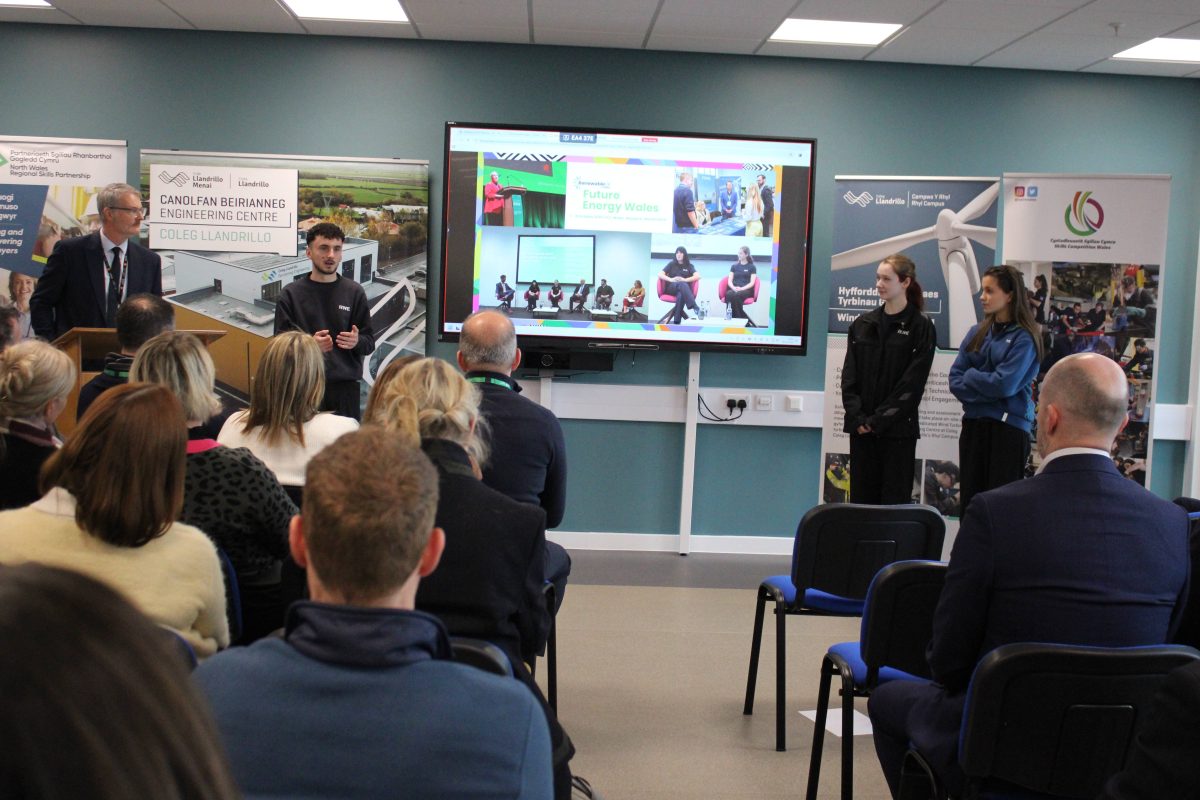Skills shortage costs #STEM sector £1.5bn every year, but computing in schools is still in ‘steep decline’

This morning, it has been reported that computing in schools is in ‘steep decline’.
It has today been reported that fewer 16-year-olds in England are getting any computing qualification. In 2018, 130,000 students got a GCSE in either computer science or ICT (information and communications technology), down from 140,000 the previous year.
According to a study by the University of Roehampton, schools have cut back on the hours spent teach computing and less students are getting the necessary qualification.
The University of Roehampton has found that the number of pupils entering computing qualifications has fallen by almost half following a league table shake-up.
This year, the ICT GCSE qualification is not even an option for students. A worrying fact considering the increasing skills gap facing businesses and industry.
Demand for workers with specialist data skills like data scientists and data engineers has more than tripled over five years (+231%), according to a labour market analysis commissioned for Dynamics of data science skills, a new Royal Society report published today (9 May). Demand for all types of workers grew by 36% over the same period.
The report, led by Professor Andrew Blake FREng FRS, shows that demand for data skills has grown across the UK. According to new statistics, the demand for workers with specialist skills such as data scientists and data engineers has tripled in the last five years, leaving the country vulnerable.
Similarly, British employers posted 27,033 job advertisements seeking professionals with data skills between July 2017 and June 2018, up from 8,157 in 2013.
Growing demand for data science leaves Britain vulnerable to skills shortages
If the UK wants to meet the needs of employers and remain a leading data research nation, the report calls for action in four areas:
- Ensuring our education system provides all young people with data science knowledge and skills, which will require curriculum change within ten years
- Advancing professional skills and nurturing talent
- Enabling movement and sharing of talent between academia, the public sector and business
- Widening access to data in a well-governed way
From transport to banking to shopping, everyday activities are increasingly leaving digital footprints that are transforming the world of work. The pervasiveness of data is rewriting the rules of many professions, and employers are increasingly seeking workers who can help them make sense of it.
Professor Andrew Blake FREng FRS, Chair of the Royal Society’s working group on data science, says:
“Capturing, interpreting and being informed by data can radically transform a business, so it is only natural that employers are catching on to the potential of hiring data experts. This report shows the British economy has high demand for people with data skills, particularly at the advanced end of the spectrum, where businesses are crying out for professionals to unlock the potential of new technologies like machine learning and artificial intelligence. Demand shows no sign of slowing down, and skill shortages that have plagued the economy for years will only get worse over time.
“Addressing Britain’s chronic supply issues requires radical action. Working as a data expert requires knowing your maths, coding and computer science as well as problem solving, resilience and communication. A-levels do not equip young people with the broad enough range of skills they need for these jobs, let alone the jobs that do not even exist yet, so overhauling the British education system is a priority.
“More needs to be done at universities too, where the intense hiring drives of tech giants increasingly lead to an exodus of researchers seeking better data, more computing power and higher salaries. More joint university and industry positions could help ensure that talented scientists stay in academia and train future generations to come. Universities may want think about embracing this joint model for data science and AI, to help secure their AI talent for the future.”
High demand for data specialists
The report analyses the demand for professionals with highly specialist data expertise, which includes roles like data scientists, data engineers, statisticians, biostatisticians, economists and financial quantitative analysts.
British employers posted 27,033 job ads seeking professionals of this calibre between the twelve-month period of July 2017 and June 2018, the latest available data. In comparison, employers posted 8,157 job ads in the twelve-month period of January to December 2013, meaning demand for this category of data expert grew by 231% in just over five years.
Growth varied considerably across the UK, from 79% in Wales and 112% in the South East to 269% in the North West and 563% in Northern Ireland. The latest available data shows that the average publicly listed salary for these roles is £64,376, up 22% over the same period.
The analysis also looked at the types of skills most frequently required by British employers. The research shows that data science, scripting languages, big data, SQL databases and machine learning are the most frequently needed skills by employers, and increasingly required for data specialists compared to five years ago.
Overhaul education within ten years
The findings provide more evidence that the nature of work is changing, particularly due to new technologies like machine learning and artificial intelligence. To ensure young people leave school with the best possible start, the report calls for curriculum change in schools within the next ten years. This should include the opportunity to study a wide range of subjects to 18, and to develop valuable transferable skills such as communication, problem solving, and teamwork – well suited for the interdisciplinary nature of data science.
The report also recommends change at universities, raising concerns that salaries offered by large tech companies could drain teaching talent away from academia. Funding bodies like UKRI could support joint appointments for the UK’s most talented researchers to work in both industry and academia.
The data
To understand the scale of demand for data skills, the Royal Society commissioned labour market software analytics company Burning Glass Technologies to mine millions of job adverts posted on employer websites. The software collected all UK-based job ads posted on 7,500 online jobsites over a five and a half year period. The algorithm then extracted information about each job vacancy to detect whether it required data expertise, which includes roles as varied as marketing managers, risk consultants and business analysts. The research separately analysed roles requiring more advanced data skills, like data scientists and statisticians.
British employers posted 9.2 million job ads between the twelve-month period of July 2017 and June 2018, the latest available data. Compared to the 6.7 million job ads posted in the twelve-month period of January to December 2013 – the earliest available data – demand from UK employers increased by 36%.
Of the 9.2m job ads, just over one in ten (996,000) required data expertise, with 345,000 based in London. Compared to the 736,611 job ads requiring data expertise posted in 2013, demand grew by 35%, similar to the rate of growth of all jobs. The report found growing demand for data expertise in every UK region, with Northern Ireland (+139%) and the West Midlands (+107%) in the lead, and slowest growth in the South East (+12%) and Scotland (+13%).
Sector Response
Charles Senabulya, Vice President and Country Manager, SAS UK & Ireland, believes that it is essential for the UK to ensure Generation Z are equipped with IT skills in order to compete in the global job market and digital economy:
“The downward trend we have seen in 16 year-olds gaining computing qualifications is deeply concerning. The fact that more and more young people are leaving education without any computing qualifications will have severe repercussions for both their and the UK’s future.
“As a nation, we need to put more time and effort into fostering training programmes that allow the next generation to develop computing skills at an early age. These qualifications are essential to help them compete in today’s digital economy. Tech learning is key if we’re to safeguard the UK’s competitive edge on the global stage, and to ensure a healthy job market.
“Job roles are already experiencing plenty of change with the arrival of artificial intelligence, robotics and smart technologies, and Generation Z need to be equipped and qualified to work alongside these innovations. More businesses will be looking to digitally transform in order to keep up and stay competitive, so tech skills will be at a premium.
“The ambition to become a ‘data scientist’ or ‘data strategist’ is not yet commonplace, but these are some of the most valuable opportunities for students in a tricky job market. Our research showed that big data and the internet of things could add £322 billion to the UK economy over the period 2015-2020, and there will continue to be a strong demand for digital skills in these fields.
“There are plenty of opportunities out there – now we need to make sure our young people are equipped to seize them.”
 Helen Milner OBE, Chief Executive, Good Things Foundation, said:
Helen Milner OBE, Chief Executive, Good Things Foundation, said:
“At Good Things Foundation we know the value of digital skills, and welcome this report into the demand for data science skills. The report findings that demand for workers with specialist data skills has more than tripled over five years means that, more than ever, we need to ensure that everyone has the skills needed to participate fully in our digital economy and the new job opportunities that this creates.
“It is vital that people have the skills needed to meet this demand. We know that a lack of the necessary skills needed to participate in the digital world has real economic impacts. Through our research, we have found that digital exclusion in the UK is holding back economic growth and stalling social inclusion. Our research has found that the UK can benefit by £21.9 billion by upskilling the entire population in digital skills.
“The digitisation of our economy and our society brings huge advantages such as the new work opportunities detailed in this report, and to ensure that these advantages are shared fairly and equally across society, we must ensure that everyone has the opportunity to access the skills necessary to participate.
“Our work has helped over 2.7 million people improve their digital skills since 2010. However, currently 11.3 million adults lack one or more of the basic digital skills for life and work. This is why Good Things Foundation is calling on organisations and government to commit to making the UK the first 100% digitally included nation and welcomes the report’s call for ensuring that our education system provides all young people with data science knowledge and skills.”
 Sheila Flavell, COO of FDM group and chair of the advisory board at IoC, comments:
Sheila Flavell, COO of FDM group and chair of the advisory board at IoC, comments:
“At a time when our nation faces an ever-increasing digital skills gap, it is simply not acceptable that schools are neglecting to provide or encourage student to pursue the necessary computing and ICT related qualifications. The detrimental impact the skills gap is having on our businesses and economy is getting worse every day, and the most effective remedy to this widespread issue begins in our schooling system.
“This is not just an issue facing the future of our businesses and our economy, but also the livelihood of the future workers who are not being offered the necessary qualifications and skills required to excel in many career options in the digital age.
“Moving forward, it is vital that all education institutions recognise ICT, computing or computer science as essential subjects which must be taught with enthusiasm. The importance of the skills that these subjects provide must also be stressed on a daily basis and many subjects relating to IT should be reintroduced to the core schooling curriculum.”
David Wells, VP & Managing Director EMEA at Pegasystems has some advice for how to turn things around to benefit computing students and industries alike.
“The figures published by the university of Roehampton highlight the need to overhaul the way computing education is taught in schools. Last year, STEM UK found that the skills shortage is costing STEM sector £1.5bn every year. Clearly, it’s an urgent matter, not only for children’s futures, but also for the future of the UK economy. The question must be faced head-on: how can we improve the teaching of computing subjects and attract students?
“It is crucial that we enthuse students to choose computing as a subject. Coding is important, but it’s not central to how businesses actually use information technology. We’ll always need students to have an understanding of how to work with code and program platforms. But computing education must also focus on logic, problem solving and on understanding how business processes work – not just on learning how to write lines of code. Furthermore, with low-code/no-code development going from strength to strength, coding in particularly might become a redundant skill in the future.
“What should lie at the centre of how computing is taught is problem solving that stretches the imagination and a sense of innovation in our young people. I completely comprehend how computing education that’s over-focused could be a switch-off for a swathe of students who actually have the talent we need to grow Digital Britain.”











Responses